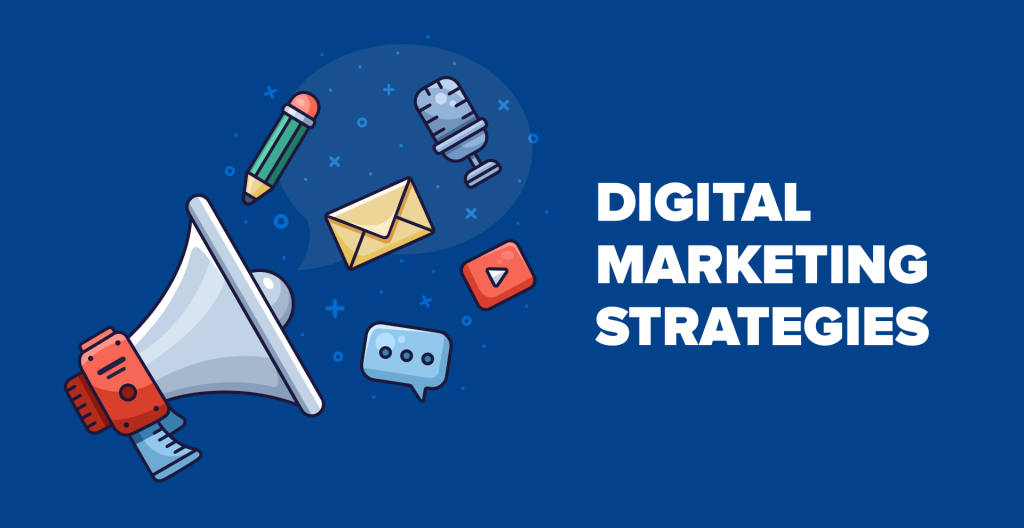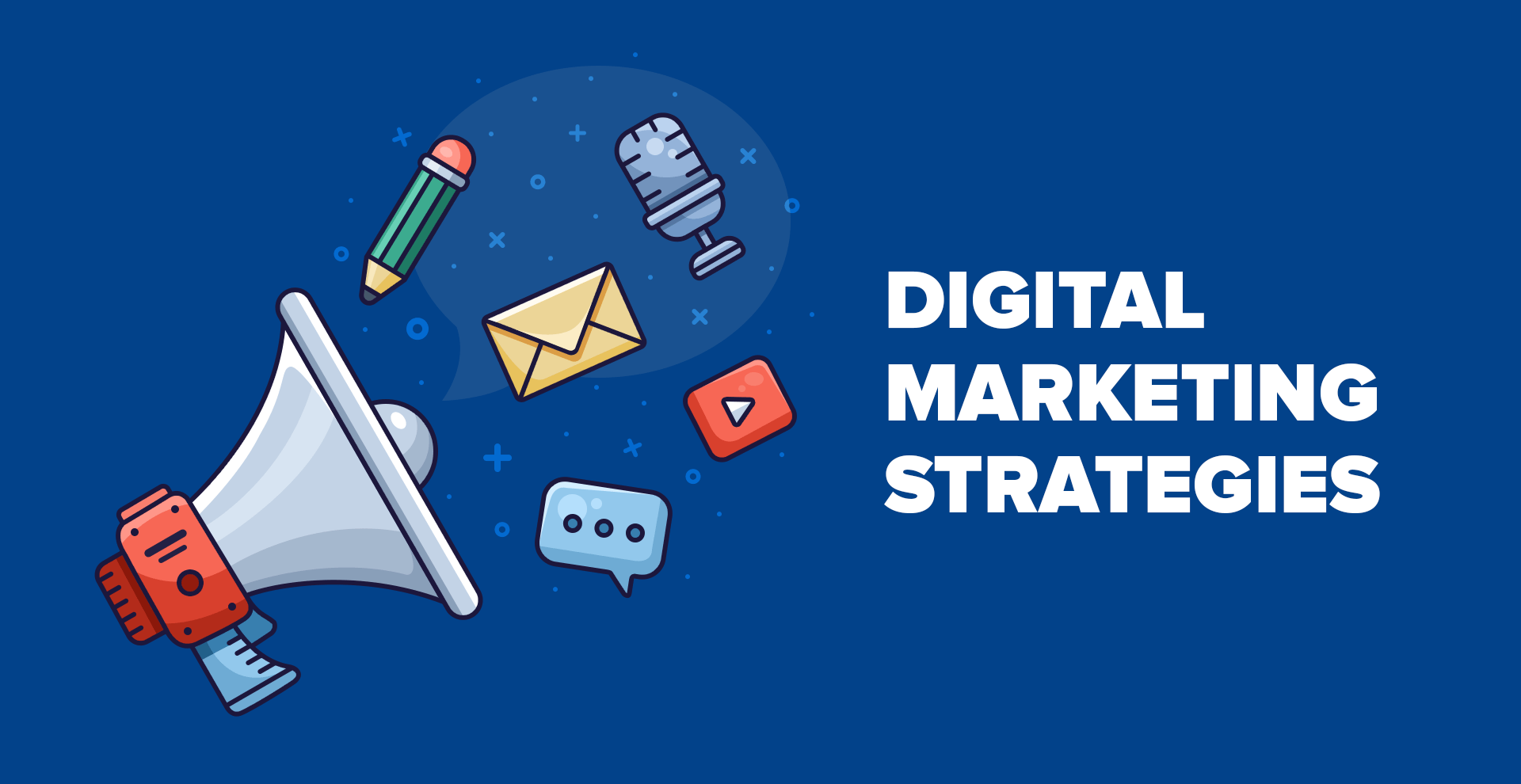In the modern world, digital marketing is a cornerstone of business growth and brand awareness. Whether you’re running a small startup or an established company, understanding digital marketing can help you connect with your target audience, drive traffic, and generate sales.
If you’re new to digital marketing, this guide will introduce the basics, highlight essential strategies, and provide actionable tips to help you get started.
What is Digital Marketing?
Digital marketing refers to promoting products, services, or brands using online platforms and technologies. Unlike traditional marketing methods, digital marketing leverages the Internet to connect with audiences in a more targeted and measurable way.
Why Digital Marketing is Important
- Global Reach: Connect with audiences beyond your geographical boundaries.
- Cost-Effective: Spend less compared to traditional marketing channels.
- Measurable Results: Track performance in real-time using analytics tools.
- Targeted Advertising: Deliver personalized messages to specific demographics.

Core Components of Digital Marketing
To succeed in digital marketing, it’s important to understand its core components.
1. Search Engine Optimization (SEO)
SEO is the process of optimizing your website to rank higher on search engine results pages (SERPs). It involves using keywords, creating high-quality content, and improving website structure.
Key Tips for SEO:
- Use relevant keywords in titles, headings, and meta descriptions.
- Create valuable content that addresses your audience’s needs.
- Optimize your website for mobile users and improve loading speed.
2. Content Marketing
Content marketing focuses on creating and distributing valuable, relevant, and consistent content to attract and engage your target audience.
Examples of Content Marketing:
- Blog posts
- Infographics
- Videos
- E-books
3. Social Media Marketing
Social media marketing uses platforms like Facebook, Instagram, LinkedIn, and X (formerly Twitter) to promote your brand.
Tips for Social Media Success:
- Choose platforms that align with your audience’s preferences.
- Post consistently and engage with your followers.
- Use analytics to track performance and refine your strategy.
4. Pay-Per-Click (PPC) Advertising
PPC advertising involves paying for ads to appear on search engines or social media. You only pay when someone clicks on your ad.
Popular PPC Platforms:
- Google Ads
- Facebook Ads
- LinkedIn Ads
5. Email Marketing
Email marketing is a direct way to communicate with your audience, nurture leads, and build long-term relationships.
Best Practices:
- Segment your email lists to target specific groups.
- Use compelling subject lines to increase open rates.
- Provide value with every email, whether it’s a discount, tip, or resource.
How to Get Started with Digital Marketing
Step 1: Define Your Goals
Identify what you want to achieve with digital marketing. Common goals include:
- Increasing website traffic
- Generating leads
- Boosting sales
- Improving brand awareness
Step 2: Know Your Audience
Understanding your target audience is crucial. Create buyer personas that outline:
- Demographics (age, gender, income)
- Interests and behaviors
- Pain points and challenges
Step 3: Build an Online Presence
Ensure your business has a professional and user-friendly website. It should:
- Load quickly on all devices
- Include clear calls-to-action (CTAs)
- Provide valuable information about your products or services
Step 4: Start Small and Scale Up
Begin with one or two channels, such as social media or SEO. As you gain experience and resources, expand to other areas like PPC or email marketing.
Top Tools for Digital Marketing Beginners
1. Google Analytics
Monitor your website’s traffic, user behavior, and conversions.
2. SEMrush
An all-in-one tool for SEO, content marketing, and competitor analysis.
3. Canva
Create visually appealing graphics and social media posts.
4. Mailchimp
Manage email campaigns and automate customer follow-ups.
5. Hootsuite
Schedule and manage social media posts across multiple platforms.
Common Mistakes Beginners Should Avoid
1. Ignoring Mobile Users
Ensure your website and content are optimized for mobile devices.
2. Overlooking Analytics
Without tracking performance, you won’t know what’s working or where to improve.
3. Focusing on Too Many Platforms
It’s better to excel on a few channels than to struggle with too many.
4. Neglecting Consistency
Regular posting and engagement are essential for building trust and loyalty.
The Benefits of Mastering Digital Marketing
- Increased Brand Awareness: Reach a wider audience and stay top-of-mind.
- Higher ROI: Spend less while achieving measurable results.
- Better Customer Insights: Understand your audience’s needs and preferences.
- Improved Competitiveness: Stay ahead of competitors by leveraging digital channels.
Conclusion: Your Digital Marketing Journey Starts Here
Digital marketing is an essential skill in today’s business world. By understanding the basics of SEO, content marketing, social media, and PPC, you can start building a strong online presence. Focus on your goals, know your audience, and stay consistent in your efforts.
As you gain experience, you’ll discover new strategies and tools to optimize your campaigns and achieve even greater success.
Ready to take your first step? Start your digital marketing journey today and watch your business thrive in the online world!
FAQs
1. What is digital marketing in simple terms?
Digital marketing is promoting products or services online using channels like social media, search engines, and email.
2. Can I learn digital marketing on my own?
Yes, there are plenty of online resources, courses, and tools to help you learn digital marketing.
3. What is the best platform for social media marketing?
The best platform depends on your audience. For example, Instagram is great for visuals, while LinkedIn is ideal for professional networking.
4. How long does it take to see results with digital marketing?
Results vary based on your strategy, but SEO may take months, while PPC ads can show results within days.
5. Do I need a big budget to start digital marketing?
No, you can start small with free tools and scale up as you grow.

